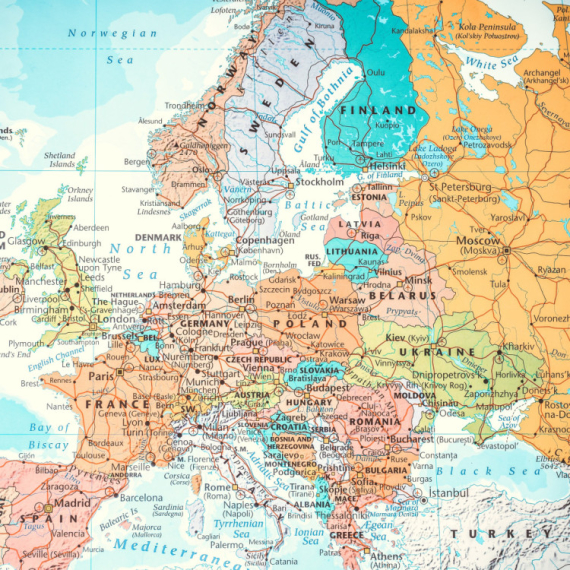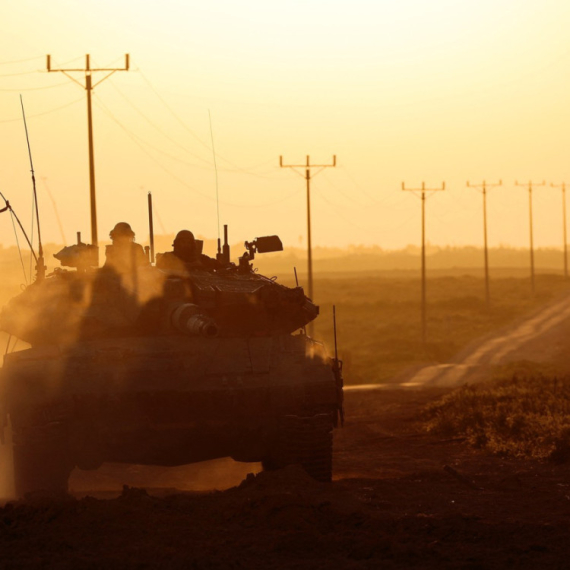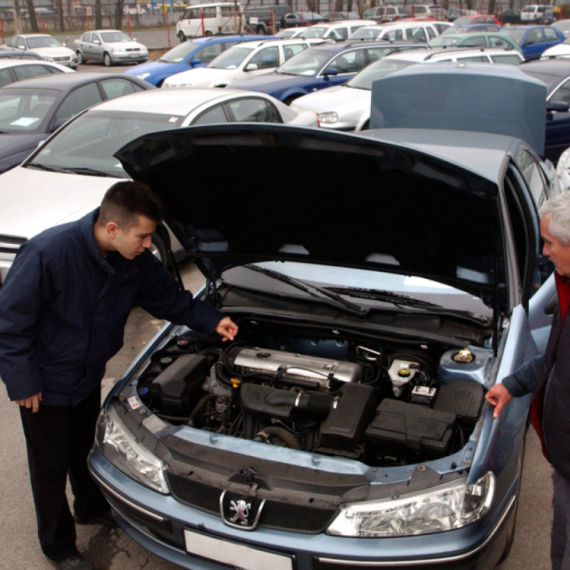"Tabloidization" threatens real news
Wednesday, 09.01.2013.
17:32

"Tabloidization" threatens real news The domination of increasingly shorter newspaper articles, which are in fierce competition with the news that television and internet provide, seem to be the only possible model for informing the public these days. This kind of general tabloidization creates the terror of superficiality and affirmation of spectacle for the sake of superficiality and spectacle alone. Hence the crisis of lack of serious reflection on the current cultural, social and political processes, which, as a consequence, contributes to a general decline in the standards of journalism. (Perspective Magazine) Shifting from readers to consumers Superficiality of information competes with the speed with which it is made available to readers, who are now called customers and/or consumers. Technological development and the expansion of Internet media has led to hyperinflation of information deprived of any wider context, so that modern ’consumer of information’ fails to achieve the intention of being well-informed. ’The consumer’ can’t pay enough attention to any specific information, thus unwillingly becoming the object of manipulation of special interest, media and political groups. The classic journalistic values, journalism based on facts, sound judgment, and devotion to the elementary moral principles have become victims of tabloidization and acceleration of technological progress. In light of these facts, while sales revenues and the sale of advertising space in media representing traditional journalistic values are declining, we should bear in mind the importance of such media not only to democracy, but also to the preservation of language and culture and ask whether the state will in any way try to help the media to survive these hard times. I believe that the new Government should immediately initiate a dialogue with the media industry on improving the management of the entire press and publishing sector in Serbia. Otherwise, if we do not take appropriate steps soon, Serbia could soon be one of few countries in Europe left without quality media, especially in print. Necessity for a new state-media relationship Despite the magnitude and severity of the economic crisis in Serbia, I am sure that the state could develop a new kind of relationship with the serious media quickly and easily if it, in the first place, sells its shares in all media, in a transparent way and in line with the procedure and terms provided by media strategy. The state should in addition propose amendments to existing media legislation or create new media laws, above all, the Information Act, Advertising Act, the Public Service Act and the Electronic Communications Act. One of the measures that state should take into consideration is the reduction of print media VAT to 4 per cent, or even to 2 per cent, in line with the initiative of the European Association of Newspapers that all EU countries minimize print media tax or reduce it to zero. Continued existence of the serious media would be facilitated if the state also abolished duty on the import of materials and equipment for the print media and also stimulated employment in the media sector by reducing taxes for full-time employees, abolished part of the tax and duties on new employees and reduced taxes on royalties. With these measures, the state could give ’first aid’ to a patient barely breathing at this time. The introduction of rules in a game where they have not existed before would be very significant. Without such ‘first aid,’ the serious press will just have to find ways to be ’self sustainable’ in the market. Adopting good practices from abroad Many are familiar with the ’French model’ or set of measures to promote newspaper reading among young people and children. This is being done through content customization, the presence of young people’s ’ambassadors’ in newsrooms, and introduction of IPG newspapers (media of political and general interest) in the early grades of elementary school. Free newspapers for this purpose would be funded equally by the publishers and the Ministry of Education. This program may be extended to high school, allow children in schools to read educational and IPG newspapers, give teacher trainees three-month newspaper subscriptions and offer free subscription to the IPG newspaper of their choice to every eighteen-year-old and issue licenses to newspaper companies to sponsor IPG newspaper subscriptions for six to eighteen-year-olds. There is a multitude of ways the state can financially assist promotion of newspaper reading in the schools. In our country this kind of initiative is not visible; it has not even been discussed outside journalistic circles. AmCham Perspective Magazine Stevan Ristic, General Manager, Newspaper Company Vreme Under the dual pressure of declining revenues and a flood of superficial output from TV and the internet, the serious media of Serbia need prompt assistance from the government if they are to survive and fulfill a necessary and important public role.
"Tabloidization" threatens real news
The domination of increasingly shorter newspaper articles, which are in fierce competition with the news that television and internet provide, seem to be the only possible model for informing the public these days.This kind of general tabloidization creates the terror of superficiality and affirmation of spectacle for the sake of superficiality and spectacle alone.
Hence the crisis of lack of serious reflection on the current cultural, social and political processes, which, as a consequence, contributes to a general decline in the standards of journalism.
Shifting from readers to consumers
Superficiality of information competes with the speed with which it is made available to readers, who are now called customers and/or consumers.Technological development and the expansion of Internet media has led to hyperinflation of information deprived of any wider context, so that modern ’consumer of information’ fails to achieve the intention of being well-informed. ’The consumer’ can’t pay enough attention to any specific information, thus unwillingly becoming the object of manipulation of special interest, media and political groups.
The classic journalistic values, journalism based on facts, sound judgment, and devotion to the elementary moral principles have become victims of tabloidization and acceleration of technological progress. In light of these facts, while sales revenues and the sale of advertising space in media representing traditional journalistic values are declining, we should bear in mind the importance of such media not only to democracy, but also to the preservation of language and culture and ask whether the state will in any way try to help the media to survive these hard times.
I believe that the new Government should immediately initiate a dialogue with the media industry on improving the management of the entire press and publishing sector in Serbia. Otherwise, if we do not take appropriate steps soon, Serbia could soon be one of few countries in Europe left without quality media, especially in print.
Necessity for a new state-media relationship
Despite the magnitude and severity of the economic crisis in Serbia, I am sure that the state could develop a new kind of relationship with the serious media quickly and easily if it, in the first place, sells its shares in all media, in a transparent way and in line with the procedure and terms provided by media strategy.The state should in addition propose amendments to existing media legislation or create new media laws, above all, the Information Act, Advertising Act, the Public Service Act and the Electronic Communications Act. One of the measures that state should take into consideration is the reduction of print media VAT to 4 per cent, or even to 2 per cent, in line with the initiative of the European Association of Newspapers that all EU countries minimize print media tax or reduce it to zero.
Continued existence of the serious media would be facilitated if the state also abolished duty on the import of materials and equipment for the print media and also stimulated employment in the media sector by reducing taxes for full-time employees, abolished part of the tax and duties on new employees and reduced taxes on royalties.
With these measures, the state could give ’first aid’ to a patient barely breathing at this time. The introduction of rules in a game where they have not existed before would be very significant. Without such ‘first aid,’ the serious press will just have to find ways to be ’self sustainable’ in the market.
Adopting good practices from abroad
Many are familiar with the ’French model’ or set of measures to promote newspaper reading among young people and children. This is being done through content customization, the presence of young people’s ’ambassadors’ in newsrooms, and introduction of IPG newspapers (media of political and general interest) in the early grades of elementary school. Free newspapers for this purpose would be funded equally by the publishers and the Ministry of Education.This program may be extended to high school, allow children in schools to read educational and IPG newspapers, give teacher trainees three-month newspaper subscriptions and offer free subscription to the IPG newspaper of their choice to every eighteen-year-old and issue licenses to newspaper companies to sponsor IPG newspaper subscriptions for six to eighteen-year-olds.
There is a multitude of ways the state can financially assist promotion of newspaper reading in the schools. In our country this kind of initiative is not visible; it has not even been discussed outside journalistic circles.

































Komentari 3
Pogledaj komentare